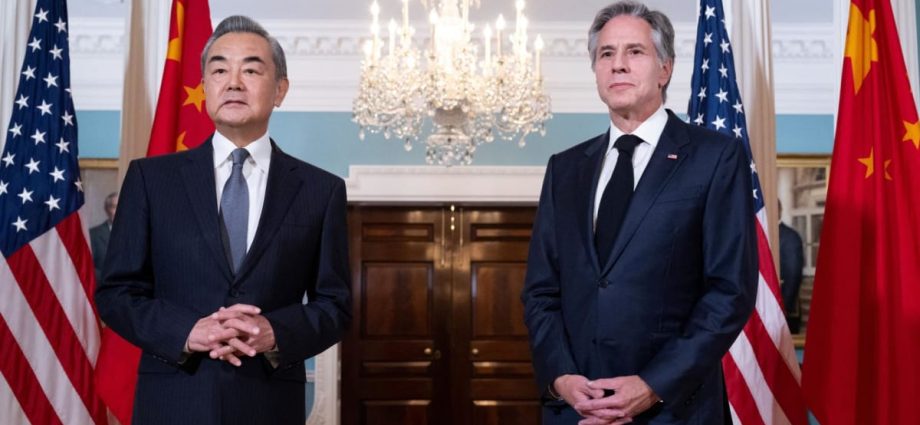
On Friday, Wang will speak at the White House with National Security Advisor Jake Sullivan. No meeting has been announced with Biden, but an encounter is widely expected after Xi received Blinken in Beijing.
US officials have repeatedly spoken of creating “guardrails” with China to prevent worst-case scenarios and have sought, without success, to restore contact between the two militaries.
“We’re going to compete with China (in) every way according to the international rules – economically, politically, in other ways. But I’m not looking for conflict,” Biden said Wednesday as he welcomed Australian Prime Minister Anthony Albanese.
Biden also warned China of US treaty obligations to the Philippines, which said that Chinese vessels deliberately hit Manila’s boats in dispute-rife waters – an account contested by Beijing.
Tensions have been particularly high over Taiwan, the self-ruling democracy claimed by Beijing which over the past year has launched major military exercises in response to actions by US lawmakers.
China’s defence ministry on Thursday accused Taiwan’s ruling Democratic Progressive Party of pushing the island toward a “dangerous situation of war.”
WHAT ARE “STABLE” TIES?
Robert Daly, director of the Wilson Center’s Kissinger Institute on China and the United States, said Wang will likely seek assurances that the Biden administration will not “embarrass” Xi if he comes to San Francisco, either through harsh new policies or public comments.
“They would like to have a smooth glide path and then a smooth exit from the meeting,” he said.
Daly said the two powers had very different views on what “stable” ties mean, with the United States having no intention of changing course from viewing China as a threat and applying pressure.
“By stabilisation, we mean that we want to be able to do that without greatly increasing the chance of conflict,” Daly said.
“The Chinese view is that stabilisation would mean America ceasing this relentless stream of provocations and insults such that China is free to focus on its extremely weak domestic economy,” he said.
The Biden administration in recent months has tightened export curbs on chips to China, stepped up military support for Taiwan and issued sanctions targeting individual Chinese over support for Iran’s drone program and overproduction of chemicals that make fentanyl, the painkiller behind an addiction epidemic in the United States.
Biden has also championed alliances in the face of China’s rise. He has forged a new three-way military alliance with Australia and Britain and promoted the “Quad” with Australia, India and Japan.
The US and China have also traded barbs over the conflict in the Middle East, where Biden has been Israel’s foremost ally.
The diplomacy with China comes as the US enters an election season in which Biden’s predecessor Donald Trump, who is seeking to return to the White House, has made hawkish criticism of Beijing a signature policy.

